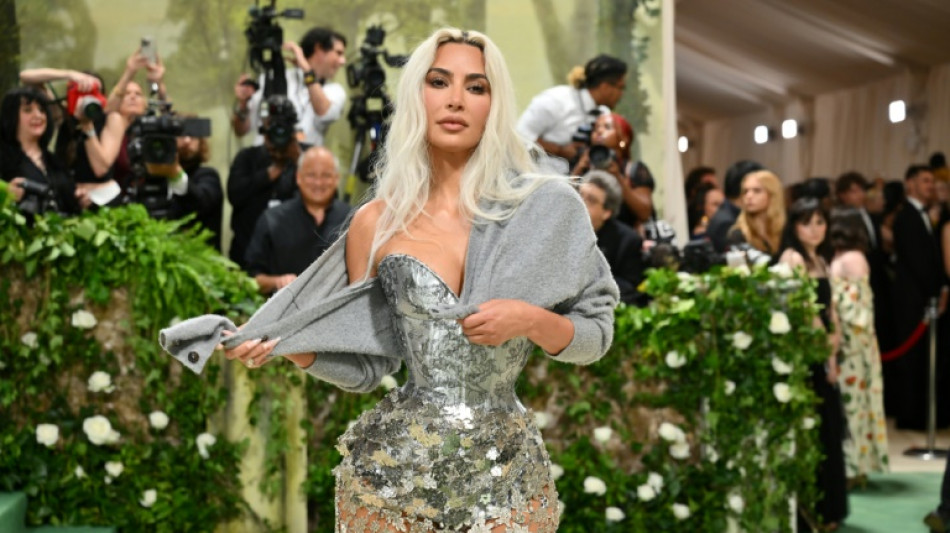
-
 Lillard matches NBA 3-point contest mark in injury return
Lillard matches NBA 3-point contest mark in injury return
-
NBA mulling 'every possible remedy' as 'tanking' worsens
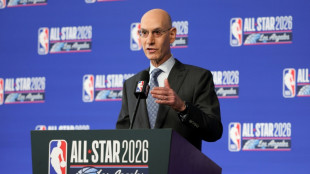
-
 Team USA men see off dogged Denmark in Olympic ice hockey
Team USA men see off dogged Denmark in Olympic ice hockey
-
'US-versus-World' All-Star Game divides NBA players
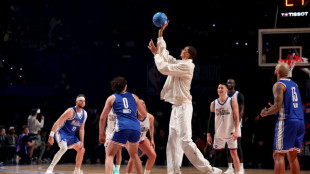
-
 Top seed Fritz beats Cilic to reach ATP Dallas Open final
Top seed Fritz beats Cilic to reach ATP Dallas Open final
-
Lens run riot to reclaim top spot in Ligue 1, Marseille slip up

-
 Last-gasp Zielinski effort keeps Inter at Serie A summit
Last-gasp Zielinski effort keeps Inter at Serie A summit
-
Vinicius bags brace as Real Madrid take Liga lead, end Sociedad run

-
 Liverpool beat Brighton, Man City oust Beckham's Salford from FA Cup
Liverpool beat Brighton, Man City oust Beckham's Salford from FA Cup
-
Australia celebrate best-ever Winter Olympics after Anthony wins dual moguls

-
 Townsend becomes a fan again as Scotland stun England in Six Nations
Townsend becomes a fan again as Scotland stun England in Six Nations
-
France's Macron urges calm after right-wing youth fatally beaten
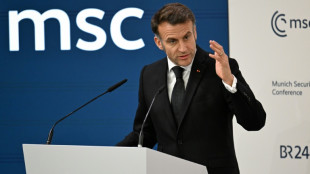
-
 China's freeski star Gu recovers from crash to reach Olympic big air final
China's freeski star Gu recovers from crash to reach Olympic big air final
-
Charli XCX 'honoured' to be at 'political' Berlin Film Festival
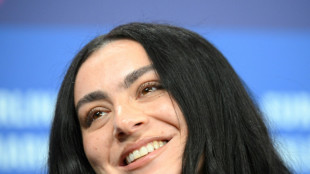
-
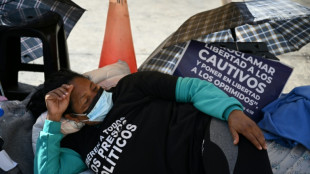 Relatives of Venezuela political prisoners begin hunger strike
Relatives of Venezuela political prisoners begin hunger strike
-
Trump's 'desire' to own Greenland persists: Danish PM
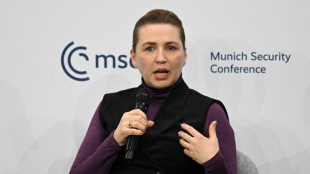
-
 European debate over nuclear weapons gains pace
European debate over nuclear weapons gains pace
-
Newcastle oust 10-man Villa from FA Cup, Man City beat Beckham's Salford

-
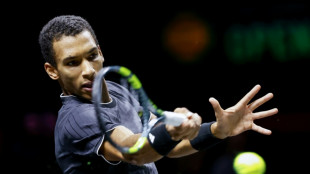 Auger-Aliassime swats aside Bublik to power into Rotterdam final
Auger-Aliassime swats aside Bublik to power into Rotterdam final
-
French prosecutors announce special team for Epstein files

-
 Tuipulotu 'beyond proud' as Scotland stun England
Tuipulotu 'beyond proud' as Scotland stun England
-
Jones strikes twice as Scotland end England's unbeaten run in style

-
 American Stolz wins second Olympic gold in speed skating
American Stolz wins second Olympic gold in speed skating
-
Marseille start life after De Zerbi with Strasbourg draw

-
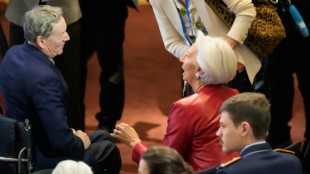 ECB to extend euro backstop to boost currency's global role
ECB to extend euro backstop to boost currency's global role
-
Canada warned after 'F-bomb' Olympics curling exchange with Sweden

-
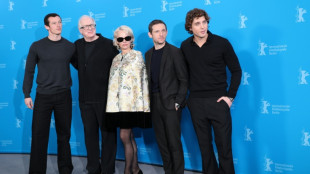 Ultra-wealthy behaving badly in surreal Berlin premiere
Ultra-wealthy behaving badly in surreal Berlin premiere
-
250,000 at rally in Germany demand 'game over' for Iran's leaders
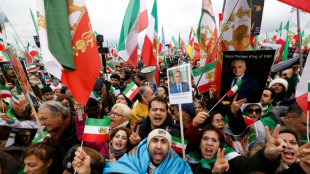
-
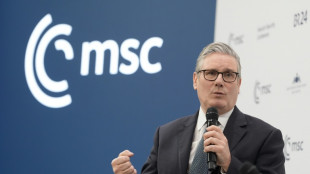 UK to deploy aircraft carrier group to Arctic this year: PM
UK to deploy aircraft carrier group to Arctic this year: PM
-
Zelensky labels Putin a 'slave to war'
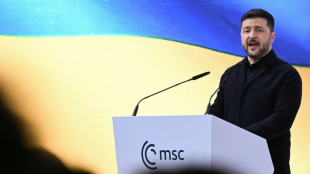
-
 Resurgent Muchova beats Mboko in Qatar final to end title drought
Resurgent Muchova beats Mboko in Qatar final to end title drought
-
Farrell hails Ireland's 'unbelievable character' in edgy Six Nations win

-
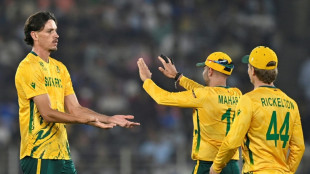 Markram, Jansen lead South Africa to brink of T20 Super Eights
Markram, Jansen lead South Africa to brink of T20 Super Eights
-
Guehi scores first Man City goal to kill off Salford, Burnley stunned in FA Cup

-
 Swiss say Oman to host US-Iran talks in Geneva next week
Swiss say Oman to host US-Iran talks in Geneva next week
-
Kane brace helps Bayern widen gap atop Bundesliga

-
 Ireland hold their nerve to beat gallant Italy in Six Nations thriller
Ireland hold their nerve to beat gallant Italy in Six Nations thriller
-
European states say Navalny poisoned with dart frog toxin in Russian prison
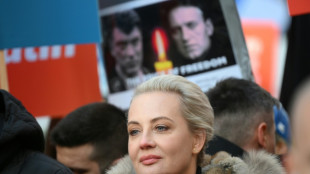
-
 Braathen hails 'drastic' changes after Olympic gold
Braathen hails 'drastic' changes after Olympic gold
-
De Minaur eases past inconsistent Humbert into Rotterdam final

-
 Eurovision 70th anniversary live tour postponed
Eurovision 70th anniversary live tour postponed
-
Cuba cancels cigar festival amid economic crisis

-
 Son of Iran's last shah urges US action as supporters rally in Munich
Son of Iran's last shah urges US action as supporters rally in Munich
-
Jansen helps South Africa limit New Zealand to 175-7
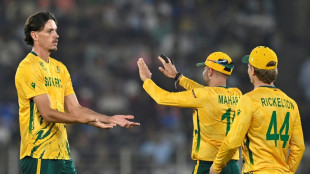
-
 Braathen wins unique Winter Olympic gold for Brazil, Malinin seeks answers
Braathen wins unique Winter Olympic gold for Brazil, Malinin seeks answers
-
Relatives of Venezuela political prisoners begin hunger strike after 17 freed
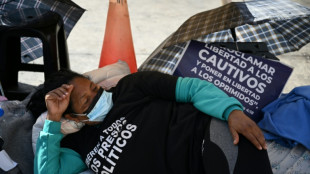
-
 Ten-man West Ham survive Burton battle to reach FA Cup fifth round
Ten-man West Ham survive Burton battle to reach FA Cup fifth round
-
International crew set to dock at space station
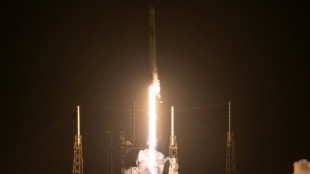
-
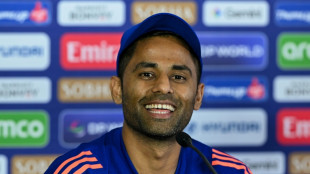 Suryakumar says India v Pakistan 'not just another game'
Suryakumar says India v Pakistan 'not just another game'
-
Brazilian Olympic champion Braathen is his own man - and Norway's loss


Celebrities face digital backlash over Gaza silence
Celebrities who have remained silent on the crisis in Gaza are feeling the wrath of angry fans wielding the "digital guillotine" to block them on social media and streaming platforms.
Taylor Swift, Drake and many more have become targets of the "Block Out 2024" movement, which began on TikTok in response to the perceived disconnect between the high-profile Met Gala and the grim realities of the Israel-Hamas conflict.
For months, pro-Palestinian activists have flooded the comments sections of social media sites, urging stars to join calls for a ceasefire in Gaza's deadliest war.
But matters came to a head after last week's Met Gala, a glitzy fundraiser and the biggest night in fashion featuring A-list stars from screen, stage, sports and the world's runways.
Dressed in an extravagant gown, influencer Hailey Kalil posted on TikTok lip-synching "Let them eat cake" -- a phrase notoriously associated with Marie Antoinette that symbolizes the callous disregard of 18th century French aristocrats towards the poor.
Fellow TikToker ladyfromtheoutside, who started the movement, responded: "It's time for the people to conduct what I want to call a digital guillotine, a digitine, if you will," referring to the execution apparatus used during the French Revolution.
"Take our views away, our likes, our comments, our money," she urged.
Her message was taken up as a rallying cry for the pro-Palestinian movement, and early signs suggest the boycott may be having an impact.
- Some impact, but for how long? -
Reality star Kim Kardashian -- who attended the ball in New York -- has lost hundreds of thousands of Instagram followers in recent days, according to analytics site Social Blade.
Global music superstar Taylor Swift, who opted to focus on her Eras Tour rather than appear at the event, has also seen a decline of more than 200,000 followers since last Thursday.
"This is about lives and justice -- if she can rally all of us to vote, she has the power to speak up about injustice," said a TikToker who described herself as a "Palestinian Swiftie" and said it was time to block, unfollow and stop streaming her idol.
It's uncertain whether the movement is directly responsible for the social media hits seen by some celebrities, or if other trends are at play.
Moreover, the losses could be short-lived, Natasha Lindstaedt, a University of Essex professor who has studied celebrity activism, told AFP.
"Sometimes people make a decision based on an emotional response to an issue and decide that if a celebrity isn't on the same side... they don't want to follow them anymore, but that takes a second," she says.
This phenomenon is known in academic circles as "slacktivism" -- substituting low-stakes online actions like posting memes or liking posts -- or choosing to unfollow a favorite star -- for meaningful political engagement.
Instead of responding, celebrities might find it wiser to wait out the backlash, especially given the sensitive nature of the Gaza conflict, which has proven perilous for many stars.
Oscar-winning actress Susan Sarandon was dropped by her talent agency UTA after speaking at a pro-Palestine rally in November.
More recently, comedian Jerry Seinfeld, long the model of an apolitical celebrity, has faced criticism for affiliating himself more closely with Israel.
That backlash against the Jewish comedian intensified after his wife Jessica donated to a group of pro-Israel counter-protesters at UCLA responsible for a violent altercation with pro-Palestinian demonstrators.
- One-way relationships -
According to David Jackson, a professor at Bowling Green State University who has studied how the political positions taken by stars affect their approval ratings, told AFP "there's a history of celebrity involvement in politics that goes back a hundred years or more in the US."
But with the advent of social media, it's become easier for people to develop "parasocial" relationships with stars -- essentially one-way connections that feel reciprocal.
"You have your network of people you follow, and some of them are people you know, and some of them are celebrities, and the boundaries, I suppose, can be blurred," Jackson said.
That false sense of closeness makes the feeling of betrayal all the more acute when celebrities take a position you disapprove of, or don't take any position at all.
Even appearing to respond to fan demands can be risky.
When Rapper Lizzo promoted a fundraiser to aid a Gazan doctor and his family in leaving the besieged Palestinian territory, she was criticized by many for her for perceived opportunism.
P.M.Smith--AMWN
